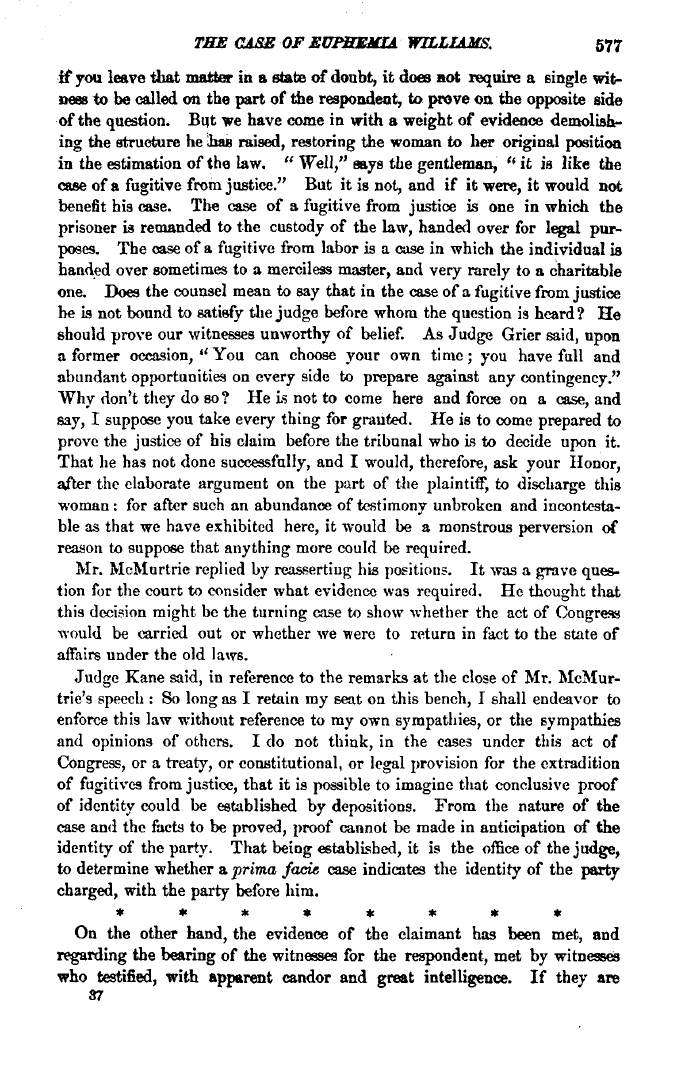 |
||||
 |
||||
| THE CASE Of EUPBEtllA. WILLIAMS. 577 if you leave that matter in a state of doubt, it does aot require a single witness to be called on the part of die respondent, to prove on the opposite side of the question. But we have come in with a weight of evidence demolishing the structure he has raised, restoring the woman to her original position in the estimation of the law. " Well," aays the gentleman, " it is like the case of a fugitive from justice." But it is not, and if it were, it would not benefit his case. The case of a fugitive from justice is one in which the prisoner is remanded to the custody of the law, handed over for legal purposes. The case of a fugitive from labor is a case in which the individual is handed over sometimes to a merciless master, and very rarely to a charitable one. Doea the counsel mean to say that in the case of a fugitive from justice he is not bound to satisfy the judge before whom the question is heard? He should prove our witnesses unworthy of belief. As Judge Grier said, upon a former occasion, " You can choose your own time; you have fall and abundant opportunities on every side to prepare against any contingency." Why don't they do so ? He Ls not to come here and force on a case, and say, I suppose you take every thing for granted. He is to come prepared to prove the justice of his claim before the tribunal who is to decide upon it. That lie has not done successfully, and I would, therefore, ask your Honor, after the elaborate argument on the part of the plaintiff, to discharge this woman : for after such an abundance of testimony unbroken and incontestable as that we have exhibited here, it would be a monstrous perversion of reason to suppose that anything more could be required. Mr. McMurtrie replied by reasserting his positions. It was a grave question for the court to consider what evidence was required. He thought that this decision might bo the turning case to show whether the act of Congress would be carried out or whether we were to return in fact to the state of affairs under the old laws. Judge Kane said, in reference to the remarks at the close of Mr. McMur-trie's speech : So long as I retain my seat on this bench, I shall endeavor to enforce this law without reference to my own sympathies, or the sympathies and opinions of others. I do not think, in the cases under this act of Congress, or a treaty, or constitutional, or legal provision for the extradition of fugitives from justice, that it is possible to imagine that conclusive proof of identity could be established by depositions. From the nature of the case and the facts to be proved, proof cannot be made in anticipation of the identity of the party. That being established, it is the office of the judge, to determine whether a prima fade case indicates the identity of the party charged, with the party before him. ******** On the other hand, the evidence of the claimant has been met, and regarding the bearing of the witnesses for the respondent, met by witnesses who testified, with apparent candor and great intelligence. If they are 37 |